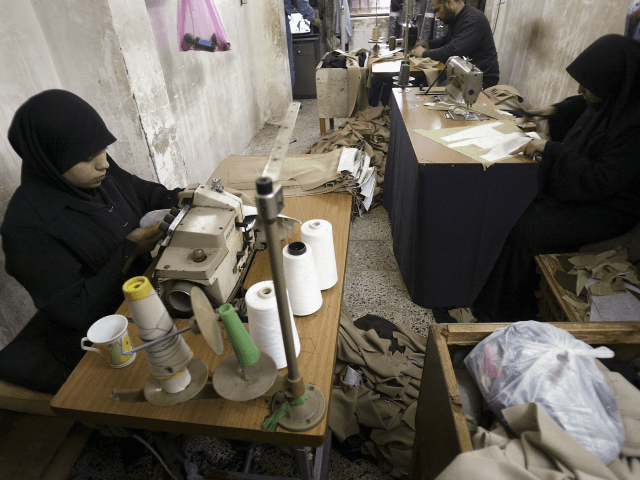Turkish businesses are using migrants virtually as slave labour, often paying them barely half the minimum wage and denying pay to those who complain.
Syrian migrants can legally work in Turkey but many end up working for employers on the black market. Some Syrians are forced to work twelve-hour days, six days a week for a monthly salary of barely €250 per month.
Rafat S. is one such Syrian migrant who fled the Syrian civil war and now finds himself sewing on labels at a Turkish textile factory. Rafat is one of hundreds of thousands who have become virtually enslaved by Turkish businesses, reports Kurier.
Around 300,000 Syrians work in Turkey according to a report by the Turkish Employers’ Association (TISK) out of a total of 2.5 million migrants.
Most of the men, women and children work on the black market for what Turkish unions call “starvation wages”. The main industries tend to be low skilled manufacturing like textile factories, making t-shirts and other apparel, or construction where the migrants are not only underpaid but often subject to long hours and abuse.
The Turkish government, which has been linked to everything from the prosecution of journalists to publishing magazines teaching children to become Islamic martyrs, has turned a blind eye to the payment of migrant wages. Many of the migrants have been unable to receive work permits due to the inefficiency of the Turkish bureaucracy.
Workplace conditions are often incredibly poor and sometimes outright dangerous. For Rafat in the small factory in Zeytinburnu, the conditions are appalling. He claims that in the basement of the building there are 60 migrant workers working in cramped conditions and revealed pictures that show tiny workstations, piles of material and intense bright neon lights.
The International Labour Organisation (ILO), an agency of the United Nations (UN), claim that they are working to end the persecution of Syrians working in Turkey. The ILO say that they have started a programme, as of 1 June, to try and help Syrians improve their working conditions and receive better pay. The agency will offer Turkish language courses and education programmes in migrant camps located primarily along the Turkish border with Syria.
Reem Z., a colleague of Rafat, says that she does not intend to stay in Turkey. The 18-year-old said: “Even though I sometimes have to work up to 15 hours straight, even if payment is outrageous for us Syrians, it is one of the few opportunities to earn money for an onward journey to Europe.”
Many experts fear that the upcoming visa-free travel permit for Turks to enter the European Union (EU) could lead to an exodus of persecuted minority Kurds and potentially Syrian migrants, as well. Turkish president Recep Tayyip Erdoğan has repeatedly threatened to release the migrants from Turkey into the EU if the visa-free demand is not met.
German Chancellor Angela Merkel is said to be considering giving in to the Turkish president even though the corresponding EU demands for visa-free travel have been disregarded by Ankara. Leaked cables indicate that up to 1.5 million Turkish migrants could also have access to the United Kingdom although the UK is not a formal member of the Schengen agreement.

COMMENTS
Please let us know if you're having issues with commenting.